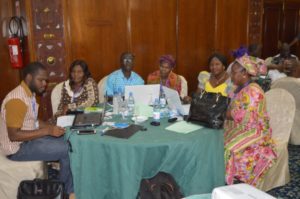OSPSANTE: A New Tool for Tracking Health Commodities in Mali
OSPSANTE: A New Tool for Tracking Health Commodities in Mali
![[A new SIAPS tool for health commodities management in Mali]](https://msh.org/wp-content/uploads/2016/02/opsante2-300x230_mali_0.png)
In Mali, major weaknesses in the pharmaceutical sector include lack of availability of regular, reliable pharmaceutical management information for decision-making and an inadequate and fragmented logistics system that fails to take the community level into account when planning for inventory management. As a result, stock-outs of lifesaving commodities are frequent at all health service delivery points.
The US Agency for International Development (USAID) mission in Mali requested that the Systems for Improved Access to Pharmaceuticals and Services (SIAPS) program, led by Management Sciences for Health (MSH), provide technical assistance in strengthening the country’s pharmaceutical system. Particular emphasis has been placed on improving data collection and analysis practices of the national government and key implementing partners to strengthen national forecasting and supply planning initiatives for key health commodities, including malaria, family planning, and maternal and child health supplies.
In May 2015, SIAPS supported the Mali Ministry of Health (MoH) in designing and rolling out a web-based dashboard that provides an early warning system for key public health priority programs, including malaria, maternal and child health (MCH), and family planning. The dashboard, called OSPSANTE, is the first tool for managing malaria, family planning, and MCH that combines logistics and patients information in the same platform. The dashboard captures, tracks, aggregates, and makes information about commodities and patients available and accessible in real time. This helps country stakeholders, donors, and other implementing partners to better plan for medicines distribution and predict stock-outs, thereby reducing wastage and ensuring the availability of essential medicines.

The dashboard is also used in Guinea and South Sudan to assist in improving forecasting, supply planning, and procurement to support the continuous availability of malaria, family planning, and MCH related commodities.